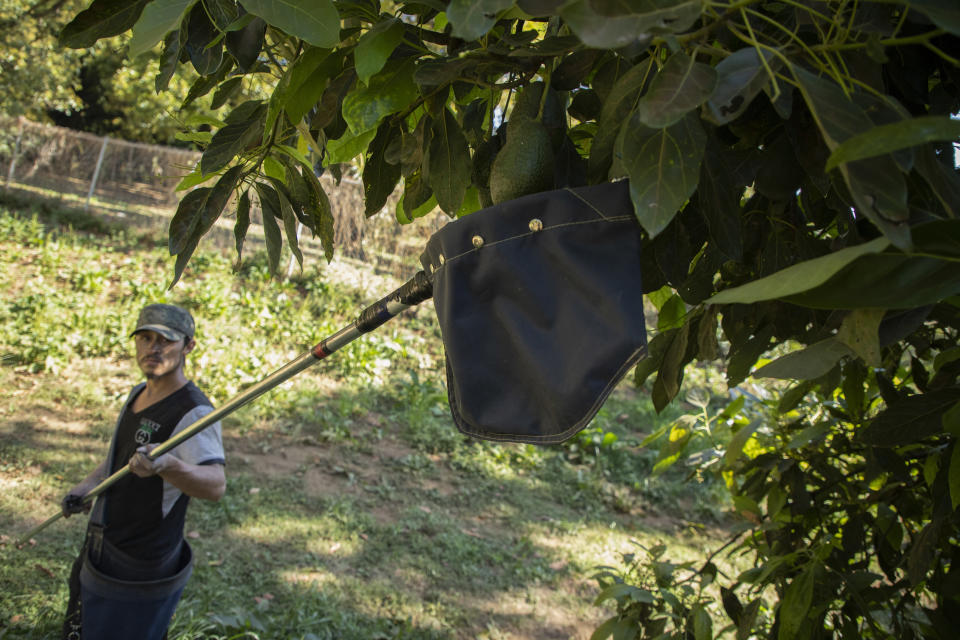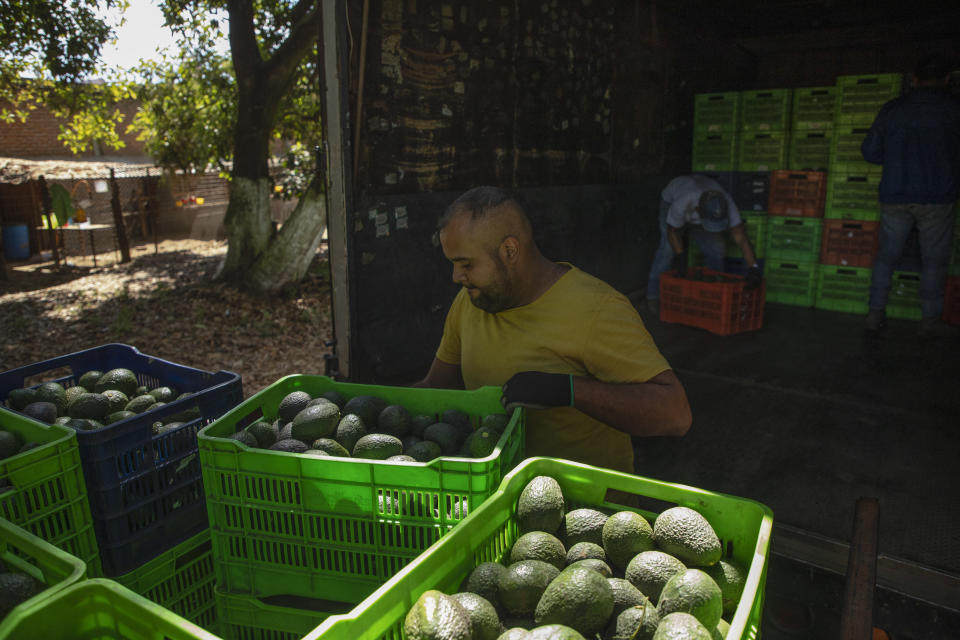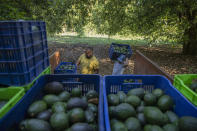Mexican avocados shipped for Super Bowl named in complaint
MEXICO CITY (AP) — One year after the Super Bowl season was marred by a ban on Mexican avocado shipments, another threat has emerged: An environmental complaint that avocado growers are destroying forests that provide critical habitat for monarch butterflies and other creatures.
The complaint, filed with the trilateral Commission for Environmental Cooperation, part of the U.S.-Mexico-Canada free trade accord, accuses the Mexican government of failing to enforce its own laws on deforestation, water conservation and land use.
Avocado orchards grow at about the same altitude and climate conditions as the pine and fir forests in Michoacan, where migrating butterflies gather each year. Growers often cut down virgin forest to plant avocados for U.S. consumers. The butterflies, because they winter at a higher altitude, are not directly threatened, but the forests around their mountaintop reserves are.
Julio Santoyo is part of a group of environmentalists in the town of Villa Madero, Michoacan where activists have suffered for years from kidnappings and threats from illegal logging gangs that clear land for unauthorized avocado orchards. The orchards require much more water than the native pines.
Santoyo said he doesn't know who filed the complaint, but he supports it.
“The complaint helps make the problem more visible, and it may help create environmental regulation that is needed” in the avocado industry, Santoyo said. “The truth is that it is well-founded, and the points it raises are what we have been complaining about and which continue to occur.”
Activists in Villa Madero say they regularly see swaths of forest cut down and irrigation ponds dug to water avocado saplings. At least two activists have been abducted, threatened and beaten when they complained about the deforestation.
Mexico has been the deadliest place in the world for environmental and land defense activists, according to a global survey by the nongovernmental group Global Witness, with 54 activists killed in 2021.
The avocado growers also face threats in Michoacan, where they are routinely subject to extortion by drug cartels.
A commission statement said the person or group that filed complaint is not being released, presumably to protect them from reprisals.
The complaint “asserts that Mexico is failing to effectively enforce its environmental laws to protect forest ecosystems and water quality from the adverse environmental impacts of avocado production in Michoacán, Mexico,” according to the office.
It “claims that Mexico is failing to uphold provisions of the Mexican Constitution and various federal laws focused on environmental impact assessment, forestry conservation, sustainable development, water quality, climate change and environmental protection.”
The complaint claims that the number of orchards certified to export fruit quadrupled between 2010 and 2021 growing from 14,181 to 63,559. The document says there are as much as a half-million acres (280,000 hectares) of avocado orchards in the western state.
“This growth has come at the expense of the forests,” the complaint states.
The association of Michoacan avocado packers and growers refused to comment on the complaint, but said it has supported reforestation efforts.
Shipments of avocados intended for consumption during the Super Bowl have already been sent north, so the complaint won’t effect on this year’s supply.
Last year, the United States briefly stopped the inspections of Mexican avocados that are required to export the fruit. The inspections, done to ensure Mexican avocados don’t carry diseases or pests that would harm U.S. orchards, were halted after one of the U.S. inspectors was threatened for rejecting a shipment in Michoacan.
The inspections resumed after a few days, when both nations agreed to enact measures to ensure the inspectors' safety.

 Yahoo News
Yahoo News 








